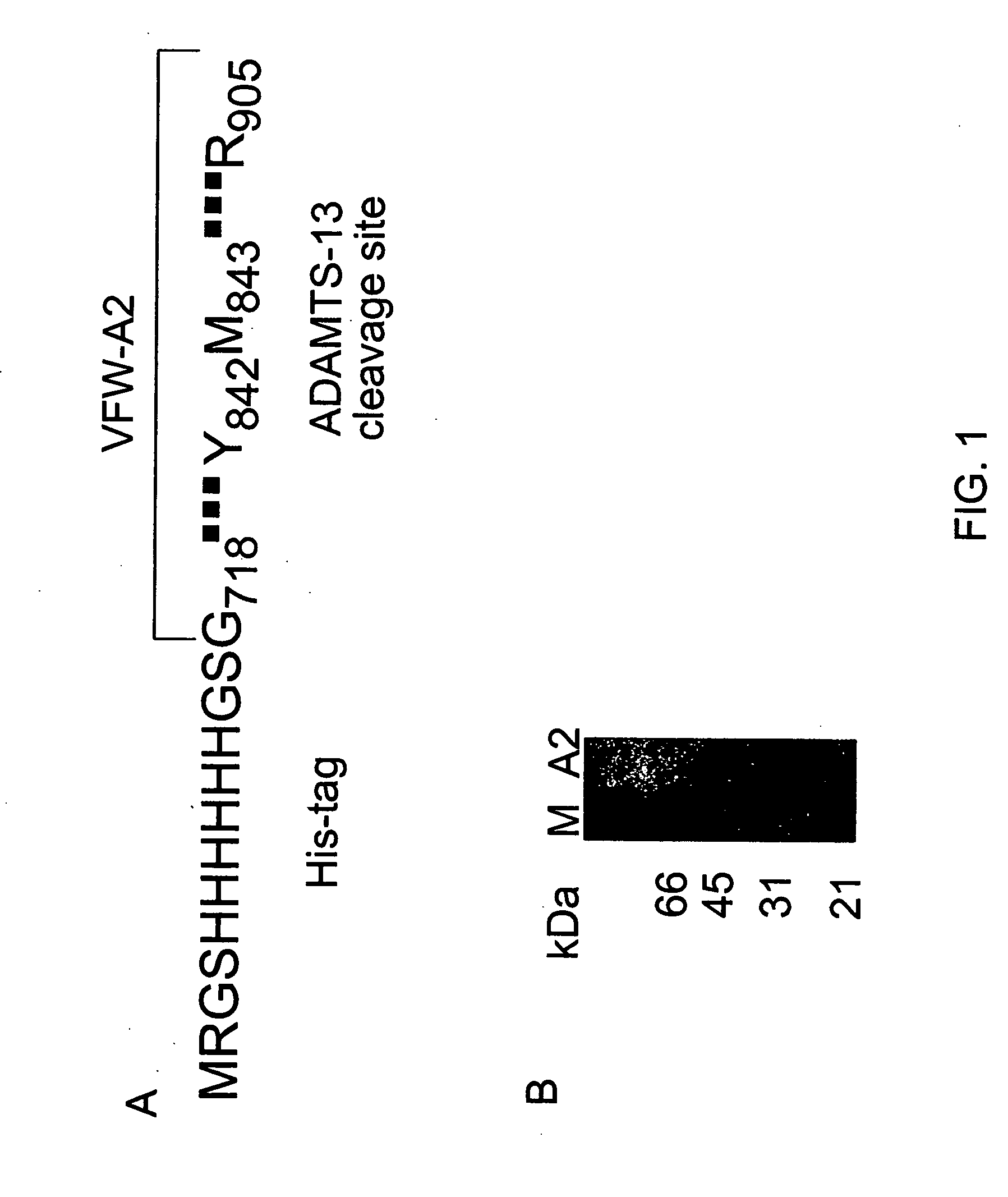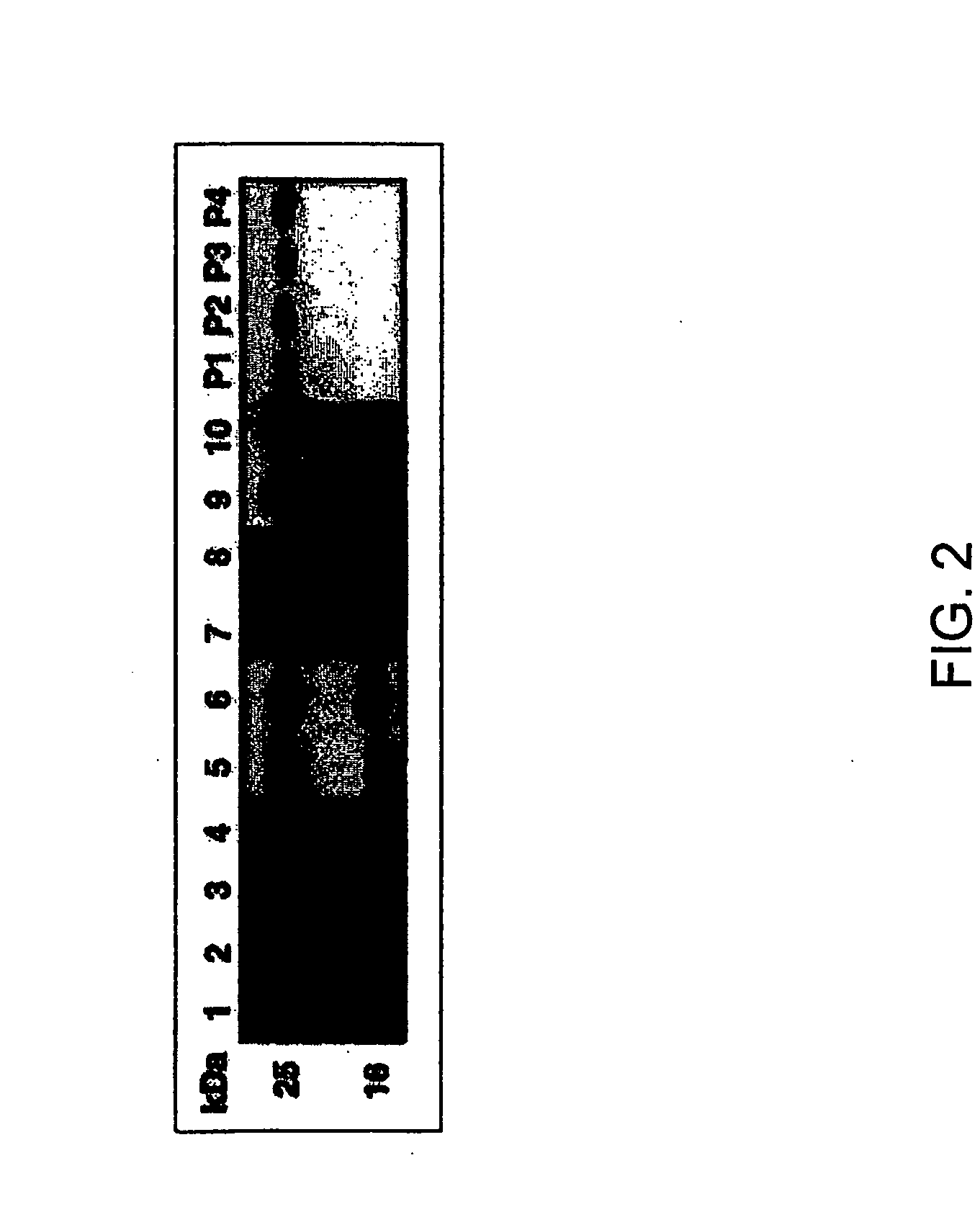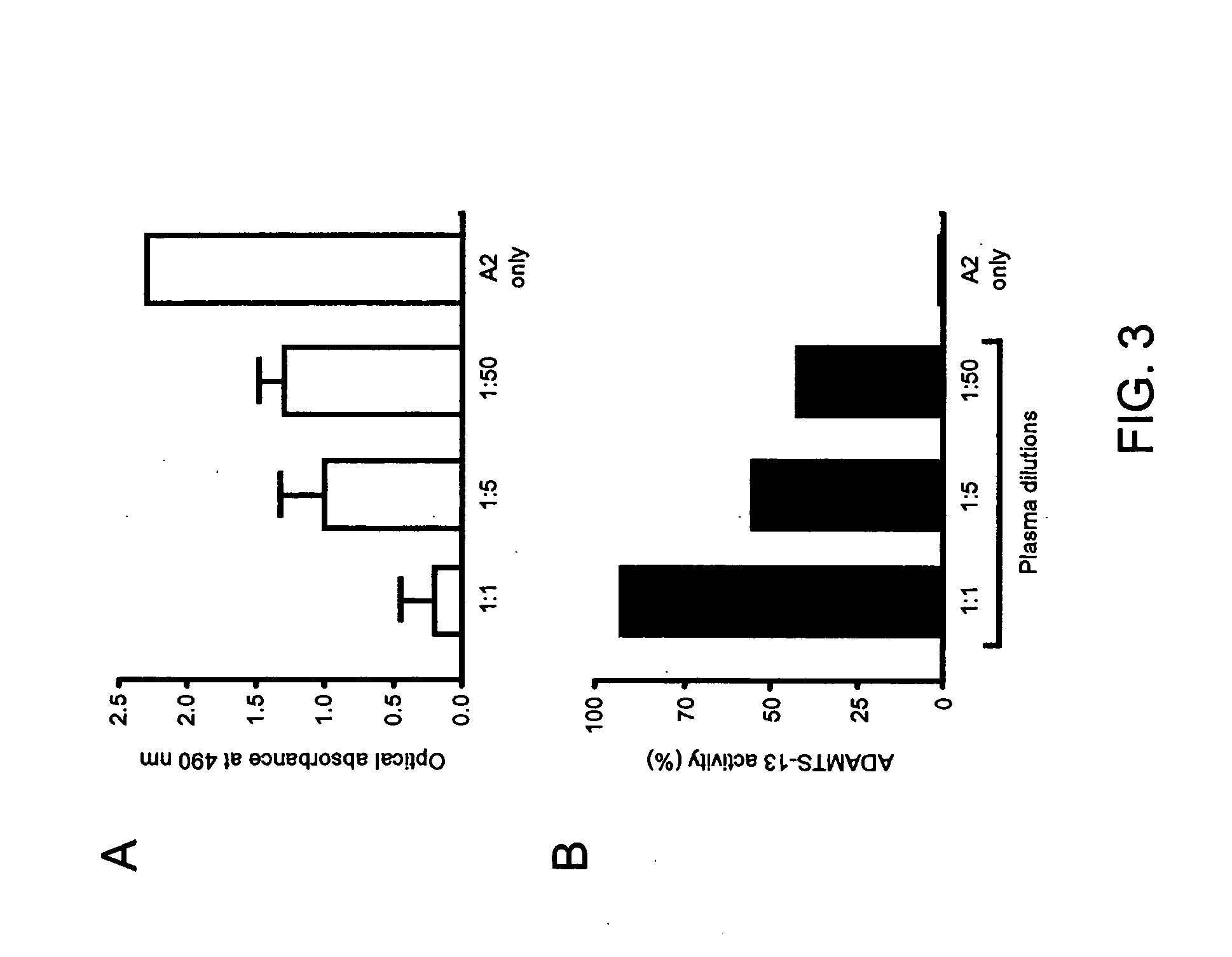Rapid assay to detect ADAMTS-13 activity
- Summary
- Abstract
- Description
- Claims
- Application Information
AI Technical Summary
Benefits of technology
Problems solved by technology
Method used
Image
Examples
example 1
Antibodies and Isolated ADAMTS-1
[0096] Ascites containing mouse monoclonal antibody VP-1 directed against amino acids residues 1591-1605 of SEQ ID NO:8, VWF protein,was a gift of Dr. Z. M. Ruggeri (Scripps Research Institute, La Jolla, Calif.). Antibody VP-1 was further purified by using a protein G column. Similarly, autoantibody against ADAMTS-13 purified from plasma of an acquired TTP patient by using a protein G column. A total protein concentration of 60 μg / mL was obtained. The partially isolated ADAMTS-13 was obtained as previously described (see Dong et al., 2002) and the total protein concentration was 275. μg / mL.
example 2
Construction of a Recombinant Single-Tagged VWF-A2 Peptide
[0097] Complementary DNA encoding the human VWF-A2 domain (aa 1481-1668) was generated by polymerase chain reaction (PCR) using full-length human VWF cDNA as a template. The PCR end primers were designed to introduce a BamHI restriction site at the 5′ end (AAGGCCGGATCCGGGCTCTTGGGGGTTTCG SEQ ID NO: 19) and HindIII restriction site at the 3′ end (AAGGCCAAGCTTCCTCTGCAGCACCAGGTC SEQ ID NO: 20). The PCR product was digested with BamHI and HindIII restriction enzymes and inserted into pQE9 (Qiagen, Chatsworht, Calif.) for expression in E. coli. The recombinant VWF-A2 domain was expressed as a His-tag fusion protein containing 12 residues at the N terminus from the expression vector (MRGSHHHHHHGS SEQ ID NO: 13) (FIG. 1). The recombinant single-tagged construct insert has a nucleotide sequence corresponding to SEQ ID NO: 21
example 3
Construction of a Recombinant Double-Tagged VWF-A2 Peptide
[0098] Complementary DNA encoding the human VWF-A2 domain (SEQ ID NO:2) was generated by polymerase chain reaction (PCR) using full-length human VWF cDNA as a template. The PCR end primers were designed to introduce a BamHI restriction site at the 5′ end (AAGGCCGGATCCGGGCTCTTGGGGGTTTCG SEQ ID NO:22) and Sall restriction site at the 3′ end (AAGGCCGTCGACTCCTCTGCAGCACCAGGTC SEQ ID NO:23). The PCR product was digested with BamHI and Sall restriction enzymes and inserted into pQE-100 double tag vector (Qiagen, Chatsworth, Calif., USA) for expression in Escherichia coli. The recombinant VWF-A2 domain was expressed with the 6×His tag at the N-terminus (MRGSHHHHHHGS SEQ ID NO:13) and the Tag-100 epitope (ETARFQPGYRS SEQ ID NO:14) at the C-terminus from the expression vector. The recombinant double-tagged construct has a nucleotide sequence insert corresponding to SEQ ID NO: 21
PUM
 Login to View More
Login to View More Abstract
Description
Claims
Application Information
 Login to View More
Login to View More - R&D
- Intellectual Property
- Life Sciences
- Materials
- Tech Scout
- Unparalleled Data Quality
- Higher Quality Content
- 60% Fewer Hallucinations
Browse by: Latest US Patents, China's latest patents, Technical Efficacy Thesaurus, Application Domain, Technology Topic, Popular Technical Reports.
© 2025 PatSnap. All rights reserved.Legal|Privacy policy|Modern Slavery Act Transparency Statement|Sitemap|About US| Contact US: help@patsnap.com



